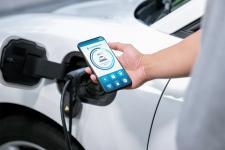The Big Debate – Should there be Zero Tolerance On Speeding?

Bedfordshire police have caused a stir in the motoring world by announcing they are considering a zero tolerance approach to speeding on the M1.
The usual 10% margin of error, which has probably saved many drivers a ticket, will be no more. Any driver exceeding 70mph will receive either a £100 fine and points on their licence or the option to attend a £90 speed awareness course. Bedfordshire police believe the zero tolerance scheme could be in action as early as April 2016.
The reasons behind the zero tolerance approach appear to be monetary. Bedfordshire police need more money and this scheme could help raise up to an estimated £1 million for the force. The news has been met with outrage from some motoring groups, who believe if these changes take place it is inevitable that other forces across the country will follow suit.
There is no doubt in people’s minds that speed kills. The majority of drivers always aim to drive within the legal limit. But, is it realistic to believe even the most careful of drivers will be able to maintain a steady 70mph without once travelling at 71 mph? Would the demands of controlling speed so precisely affect the safety of the driver?
There is an argument that zero tolerance to speeding may cause drivers to spend more time watching the speedometer than the road ahead. This would increase the likelihood of crashing into the back of the vehicle in front. AA President Edmund King has previously said ‘ If a driver strays over the limit by 2mph, they shouldn’t be, but it’s better they do that and stay focused on what is going on around them’
Many motorists may also be wondering just how reliable the speed their speedometer is displaying really is. Speedometers use the number of rotations by the driveshaft, axle or wheel to calculate speed. It’s easy for these figures to be thrown off by differing tyre treads or a different brand of tyre for example. This is why most people find if they are using a satnav the speed shown on the satnav will differ from the speed on the speedometer. A satnav will use a more traditional method to produce speed, a calculation of distance/time.
The law in the UK means that your cars speedometer will never show less than the true speed of travel. So you could be going slower than the displayed speed but never faster – phew!





